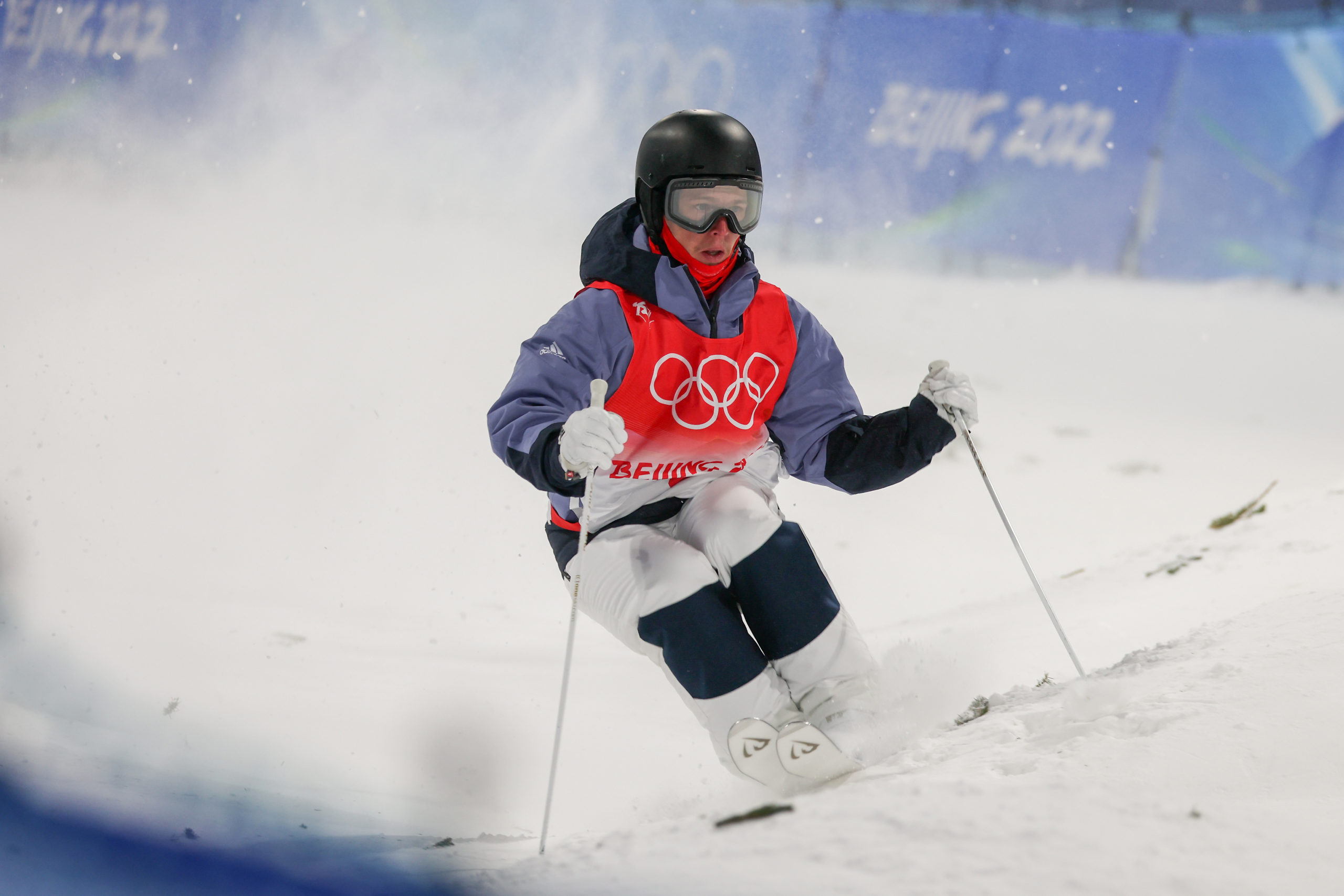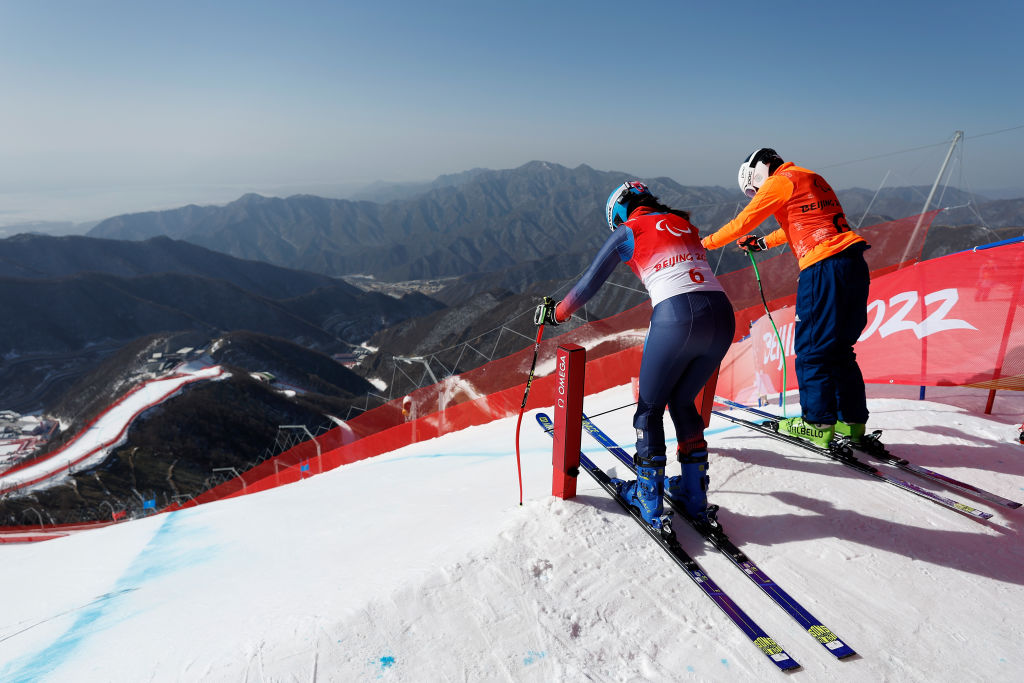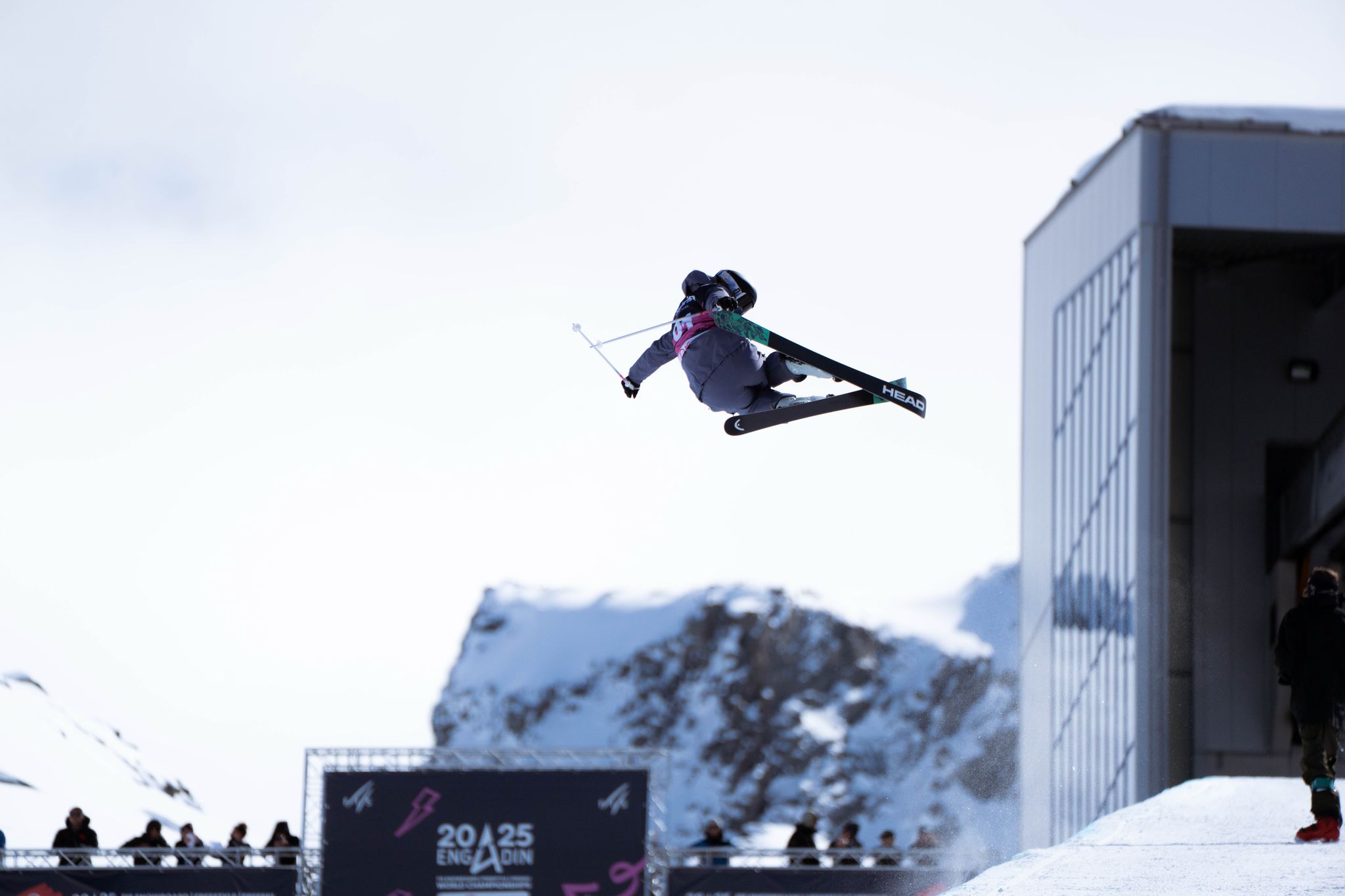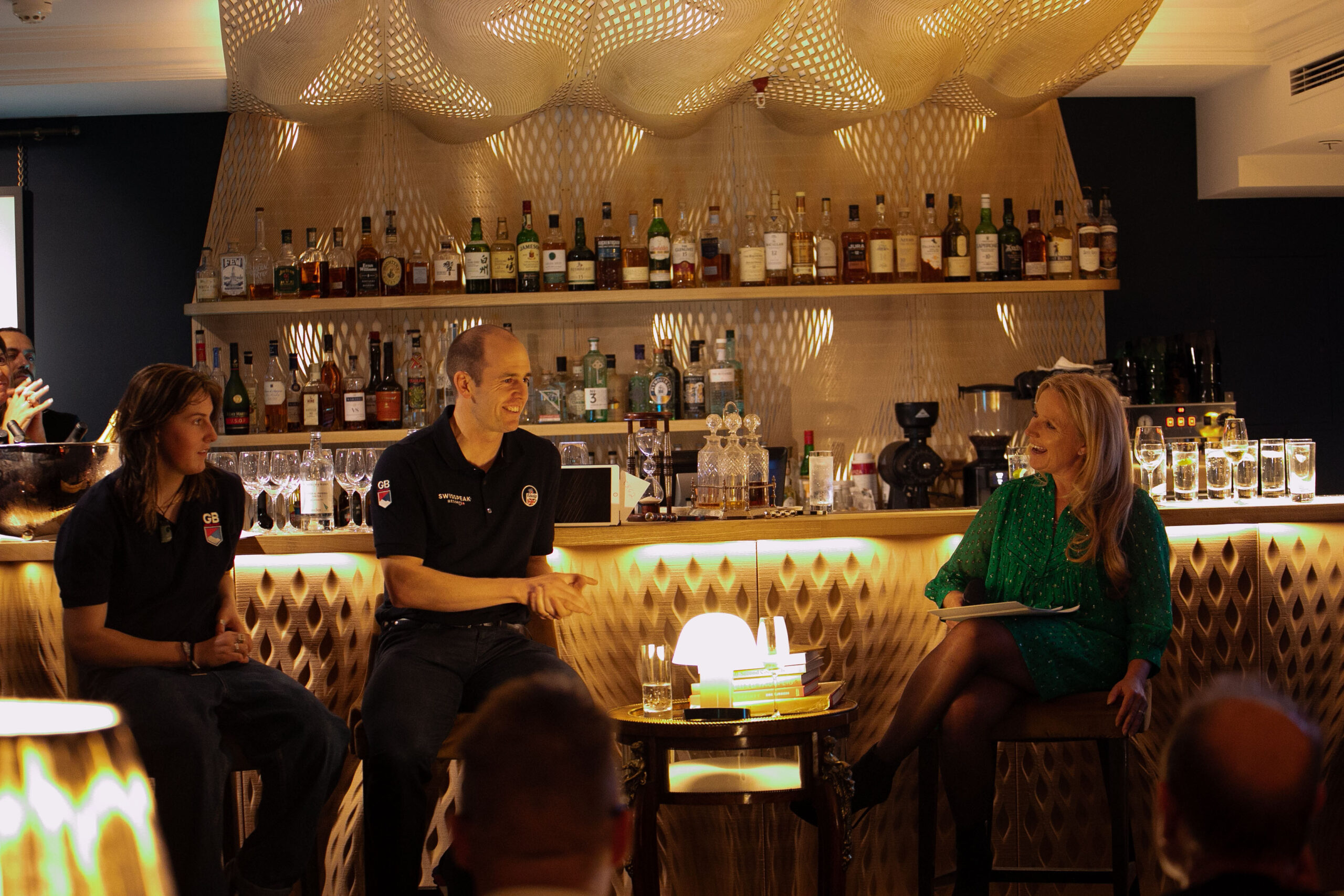
Read the thoughts of two of Britain’s biggest snowsport stars on their journey, what the future holds, and the growth of British skiing and snowboarding
At our Season Launch event hosted at Fortnum & Mason’s 3’6 Bar, Dave Ryding and Mia Brookes joined Vicky Gosling for an exclusive Q&A. Here we present a lightly edited transcript featuring both athletes’ views on a wide range of topics relating to their careers and Britain’s standing in the worlds of skiing and snowboarding.
Vicky Gosling (VG): Since 2009 we’ve seen huge changes in the British snowsport landscape. How would you say you’ve seen it change in that time?
Dave Ryding (DR): A rollercoaster! Certainly ups and downs, peaks and troughs but I’ve certainly always seen a direction in the athletes, coaches, and the federation. Watching it all grow over the years and the results getting better each season has been great to be part of, and also great to watch the other disciplines leading the charge.
It’s been fifteen years almost of progression, and I’m happy to be a part of it.
VG: Do you think the opinion of us, of Britain, has changed from that perspective? Are we still see as the underdog?
DR: I think as we’re not seen as such as an Alpine nation, I think we’ll always be classed as slight underdogs. But when you see the results we’re taken very much more seriously now – I mean, I’ve got a World Champion sitting next to me and other World Champions in the Federation, which speaks for itself.
I quite like being the underdog. It’s the British sort of thing. But in Madonna [last season], we had more racers in the second run of the Slalom than the French did, so I think we’re certainly shaking people up and long may it continue.
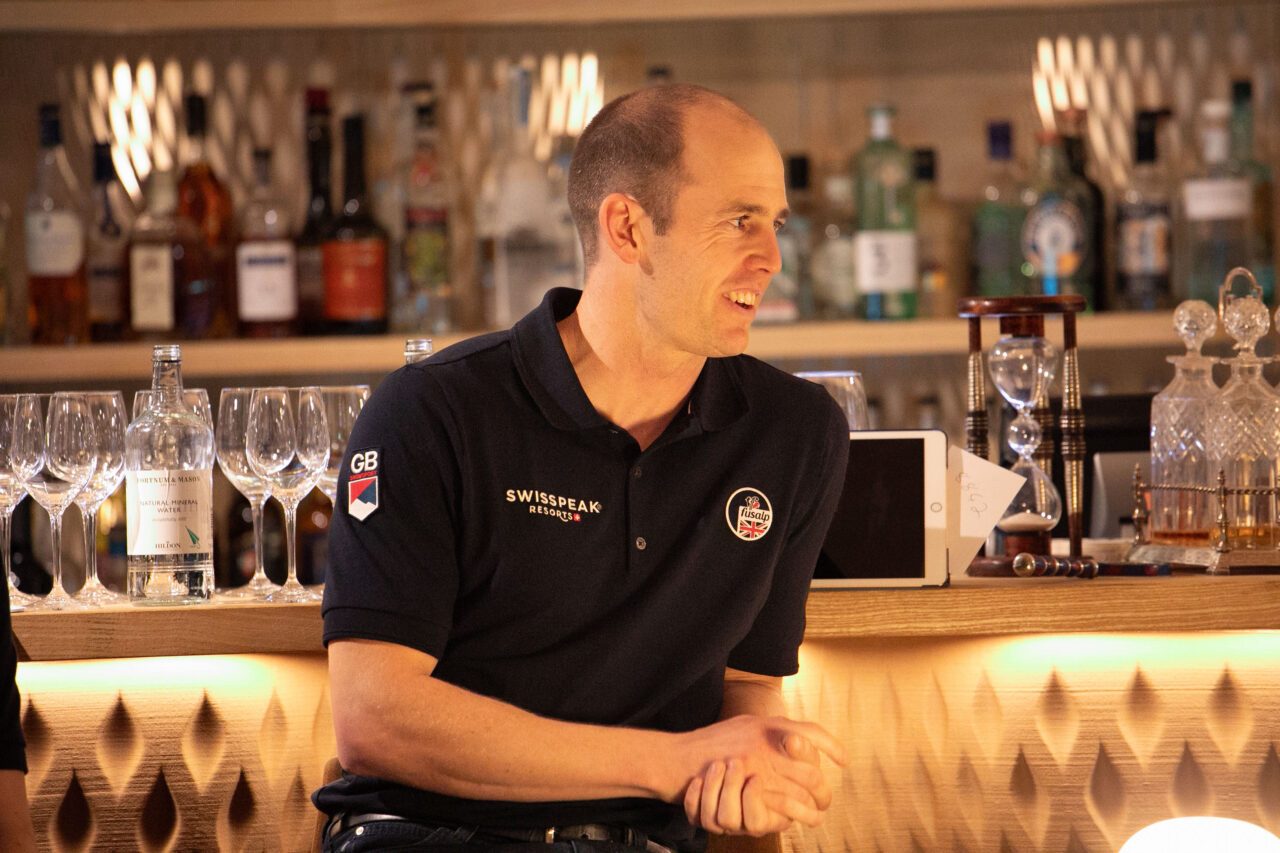
VG: Every time I hear people speaking about Dave, everyone talks about how you learnt on the dry slopes and how relevant that was. Obviously it’s really important, we’re trying to encourage Britons to get into the sport and we’ve got incredible, inspirational athletes like you in the mix, but sometimes it can be a challenge for people to get out to the mountains. How important is it having those dry slopes and having the facilities within the UK?
DR: I can safely say that I wouldn’t be here today without them. I think the most important thing is the opportunity to put skis or a snowboard on. My first goal on a dry slope was just to be allowed to go on a family holiday. It was never to be racing Kitzbuehel, but I think the opportunity that it gives kids and families to put skis on – and they will like it, it’s a great sport – and then go out into the Alps and onto the real snow, that’s what it’s all about.
The competition and the friends you meet also in this country competing, like I did until I was 21, it’s what Britain’s about, and what the dry slopes offer is the opportunity and the space to learn how to ski and board.
VG: We’re talking about kids, but how does it feel to be one of the elder statesmen of the sport?
DR: I certainly get reminded about my age more often these days! Thankfully I’ve got two guys who are always with me in Billy and Laurie on the team, and they keep me in my place and if I’m feeling my age they certainly don’t let me for too long. They really keep pushing me along and having the team vibe – not just in our team, but in the whole federation – it does make a big difference, and I don’t think I would have got that last step in my career without the younger guys and girls. I do draw upon the experience sometimes though.
VG: What I would say is that whenever I make the calls to see how the Alpine team is getting on with the physical training, Tristan always says that you’re beating everyone hands down!
DR: [laughs] maybe sometimes.
VG: And then finally, your victory in Kitzbuehel; I have to say it was a real landmark because it hit the front pages of the papers here. How did it make you feel, seeing yourself in that position?
DR: I don’t know to be honest; I was racing two days later, so I couldn’t really sit back and enjoy the moment too much! It certainly changed the perspective of British skiing, certainly in the Alpine world. Not overnight, but I certainly found the respect went up another notch. I was proud of what I’d achieved already, but when I got the win it certainly felt like it was another step in respect from other nations and other skiers, so that was nice. But Tristan, the coach, as anyone who’s on the team will tell you, doesn’t let you rest on your laurels too much, so it was back to the drawing board pretty quick!
VG: Thanks Dave. And Mia, you of course made the media sit up and take notice too. This time last year you were preparing for your first World Cup, now here you are as the youngest snowboard World Champion. What’s that last year been like for you?
Mia Brookes (MB): Pretty crazy! I went into the season just going to make it to finals in World Cups, and didn’t really know what World Championships properly was until two weeks before! I just had to be like “sweet, alright, let’s go” and a week later, I had a gold medal.
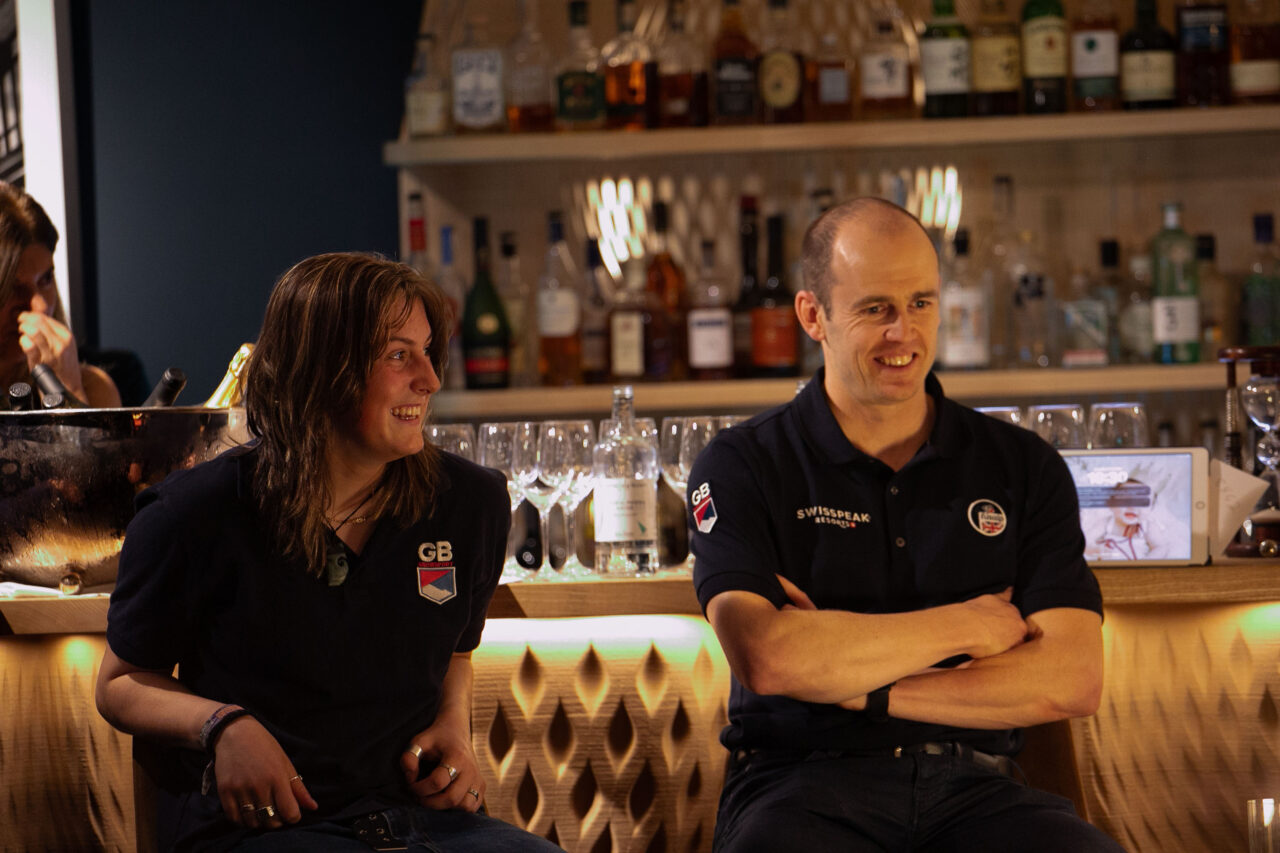
VG: Just like that. What was the reaction like, because you were still at school? How do you make that normal in school?
MB: I don’t know, it just was. I never really knew any different because I’ve always been competing and then going to school, so that just made it quite normal for me.
VG: One thing I always think when we’re talking about the sport and how challenging it can be; it clearly takes a lot of bravery to do what you do. How do you get yourself into that headspace to do the tricks you do, and put yourself in a position some people would find really risky?
MB: I feel like, because I’ve done it for so long, it’s just normal for me now. I know what I’m capable of doing, and if there’s something I’m not sure about, I can work with my team to make sure I’m in the right headspace to get myself comfortable with what I’m doing. It’s a lot of repetition.
VG: We all wished you’d been eligible to compete in Beijing, but now for Milan-Cortina you’re going to be; how does it feel to have that on your radar, even a couple of years out?
MB: It still feels like it’s so far ahead that I just need to concentrate on what I’m doing year-on-year; at least, that’s what I’m trying to do for now. Obviously the aim is to hopefully get a medal there, but for now it’s just about working towards it every year, not just setting myself that one goal, but having lots of little goals in between.
VG: I know a lot of people know this story already, but for those that don’t; how did you get to this point, and how did you get into it in the first place?
MB: Well, I’ve got to thank my mum and dad. They got me into it when I was two years old, and I started getting competitive when I was about seven or eight, and it’s all sort of fallen into place since then. With the World Cups, it was just the next step and it was there, so I’ve been building up to that year-by-year since I started.
 Share
Share